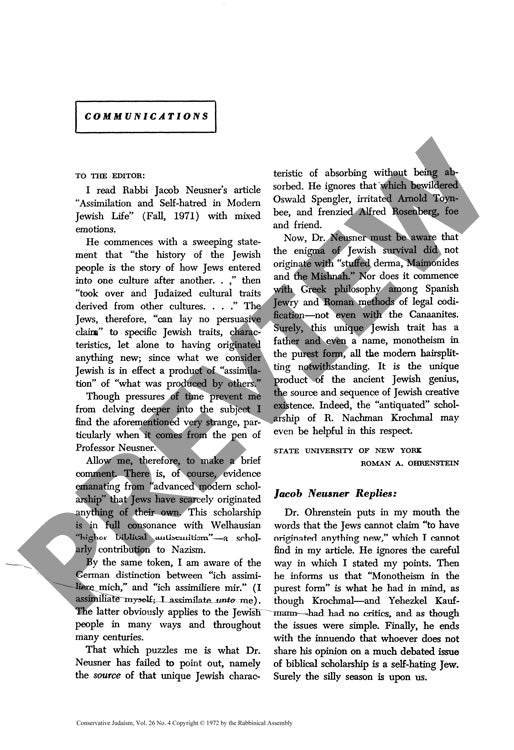Communications
Couldn't load pickup availability
How have Jews maintained their distinct cultural identity while adapting to host societies across millennia? A scholarly exchange in Conservative Judaism between Jacob Neusner and Roman A. Ohrenstein tackles this enduring question through critical analysis of Jewish historical development and cultural transmission patterns. The debate ignites when Neusner argues that Jewish history primarily demonstrates cultural absorption and adaptation, prompting Ohrenstein's counterargument that monotheism represents a unique Jewish innovation enabling cultural survival. Through detailed correspondence, Ohrenstein posits that this distinctive monotheistic foundation allows Jews to incorporate external cultural elements while maintaining their core identity - a phenomenon that has perplexed prominent historians like Spengler and Toynbee. Neusner's subsequent response clarifies his position, rejecting accusations of denying Jewish originality while emphasizing the complex evolution of monotheistic thought. Their exchange illuminates fundamental tensions in Jewish scholarship regarding cultural authenticity versus adaptive survival mechanisms, contributing to ongoing debates about Jewish exceptionalism and religious innovation's role in cultural persistence. The correspondence exemplifies how contemporary Jewish intellectual discourse navigates questions of identity, originality, and historical interpretation within academic frameworks.

More Information
-
Physical Description
-
Publication Information
Published 1972
ISBN
-
Publication Credits

